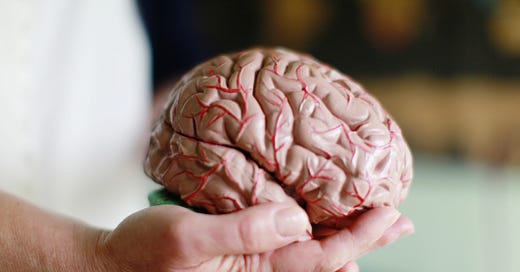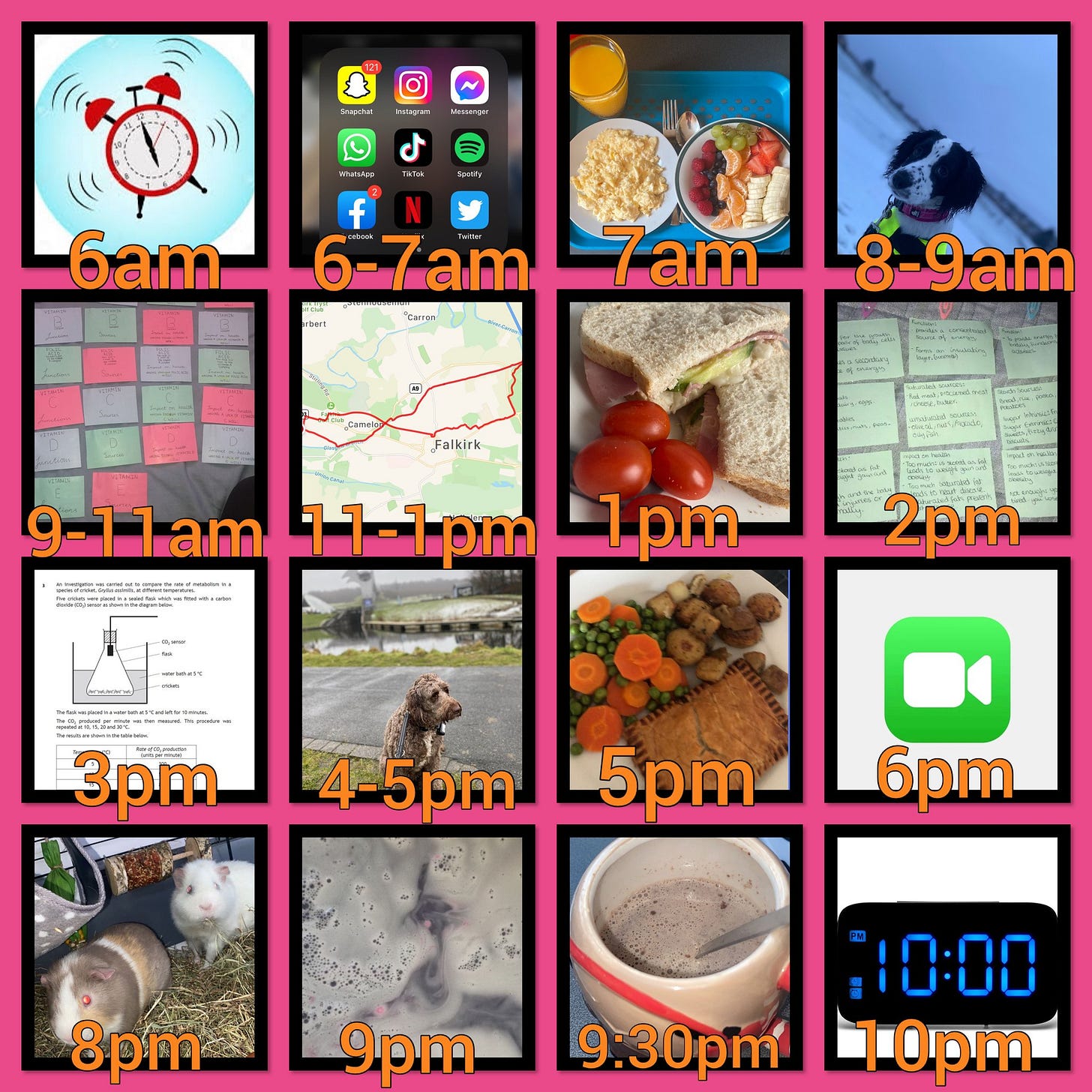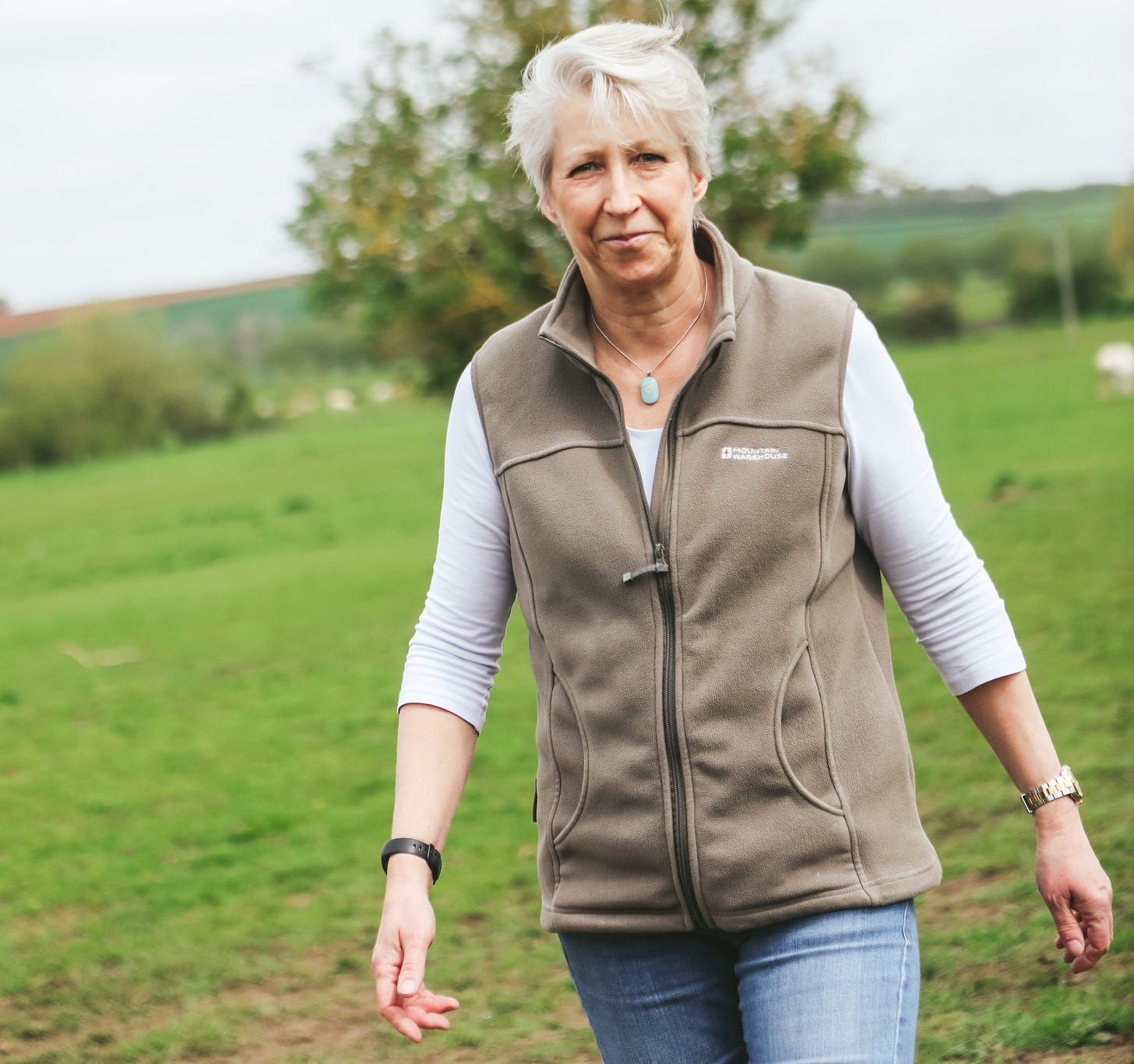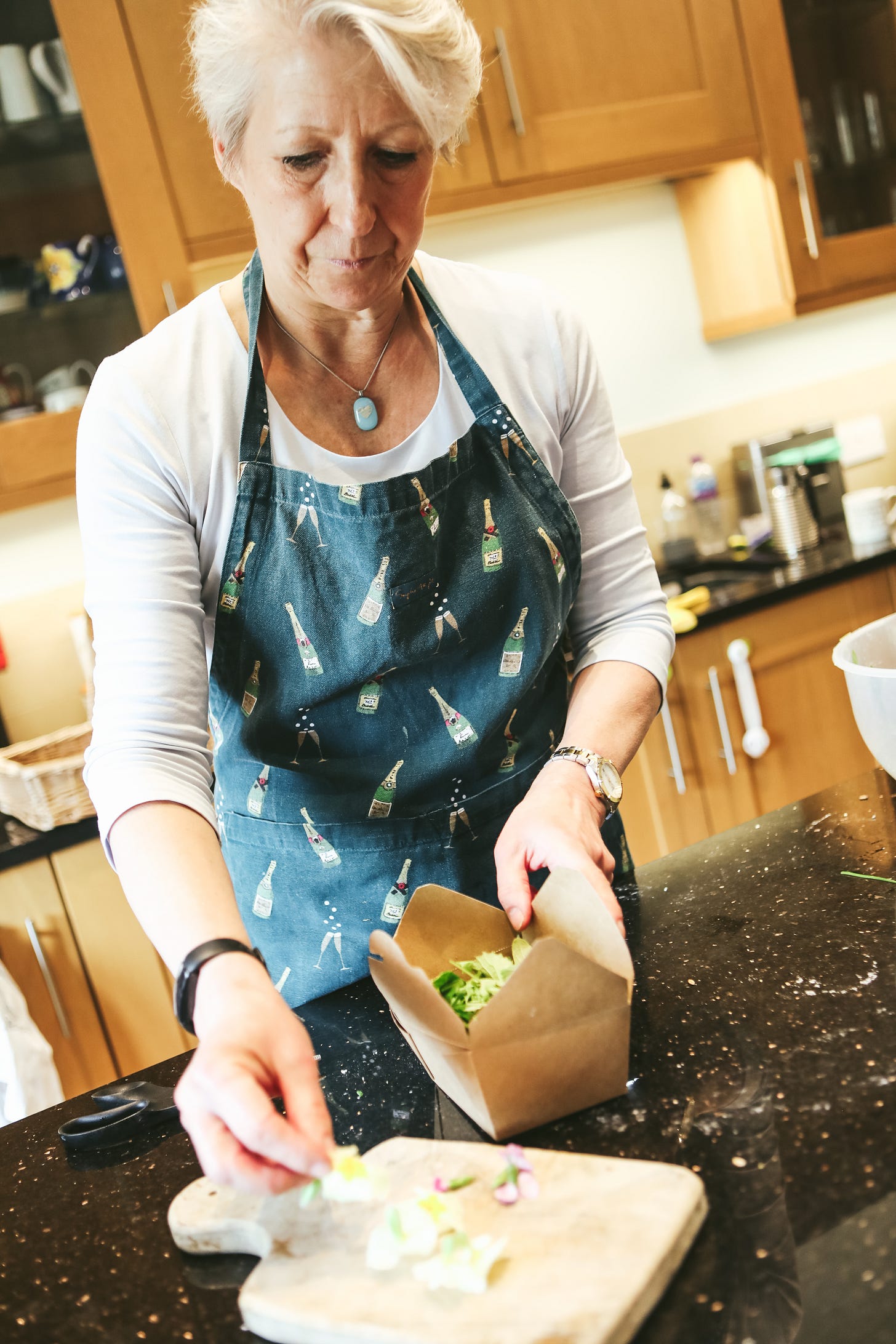(Photo credit Alison Ford Photography, taken for Nicola Morgan - “My brain in my hands”)
If you do an internet search for “how long does it take to build a new neural pathway” (or “…to change a brain pattern / build a new habit / change my brain/etc”) you’ll get a very wide variety of answers. This is because when scientists try to answer that question they have to choose a feasible way to measure the results and there are almost as many ways to do that as there are scientists trying to do it. They’d have to define “build”, “change”, “new” “habit” etc etc. Are we looking for a very strong fixed habit or just a small change? Are we looking for a firm neural pathway that is likely to last or just any measurable change? Do we measure it by what we see in the brain (very difficult) or how the person’s skills or behaviours have changed (easier but likely to be very different in different people and different situations.)
What we do know, however, are two things:
The parts of the brain you use less will gradually work less well, as neural pathways weaken with lack of use. “Use it or lose it”. You may not completely lose it (it being a skill or a memory or a piece of knowledge) but you will lose it somewhat. Including the skills of riding a bike or writing by hand. The better you once were at something, the better you will remain but you will lose some mastery. Lack of practice ensures lack of perfection.
Everything you do, mentally or physically, makes a physical change in your brain, specifically by strengthening the neural pathways that are used in that action. Each small repetition might not make a discernible difference (though sometimes it does) but the difference is there. And it builds incrementally until the difference is noticeable. Practice might not make perfect but it heads in that direction.
If you want to be an excellent violist, you do not expect that to happen in a day or a week. You expect incremental improvements that come with practice. And practice (supported by good teaching and character strengths such as grit and discipline) is the only way to excellence at anything.
I don’t teach violin but I do teach how to become a brilliant player of your own instrument: the brain.
Your task: tweak your brain
Today’s lesson is about making a small number of tiny changes to how you go about your day. I will ask you to make three changes and they will be your choice. But if three seems too many, you can just choose one.
Four rules - or guidelines if you don’t like rules:
Do not choose more than three.
Do not choose something you already do - that’s cheating!
Write them down and stick the piece of paper in a relevant place - for example, if it’s something to do with food, stick it to the fridge/snack drawer; if it’s something you need to do first thing in the morning, stick it near your bed.
Do each one every day for at least ten days. Then assess. If it’s gone well, carry on with those and add one more if you want.
What kind of changes?
I really do mean tiny changes. You might have big aims, such as doing more exercise or eating more healthily or being on social media less or improving your sleep. These are all too vague and too large to be be effective. I want you to consider very small changes. Each of them could be a step towards your larger goal or they could just be new, positive actions that will become habits. And a habit is nothing more than a strong neural network.
Thus you will change your brain in ways that you will soon notice. And so you will build yourself a better brain and a better life.
Some ideas - but you will have many more
Choose the things that work for you and that seem to move you towards where you want to go. these are only suggestions, starting points. Use them to prompt your own ideas.
During the first hour after waking
Water: Finish the glass of water beside your bed (because you did put one there the night before, right?) before getting up. If there’s not much left, get up and fill it so you can drink at least 1/2 - 3/4 of a glass before doing anything else.
To-do check-in: Look at your calendar / to-do list, make a mental note of appointments or urgent actions and also pick 1-3 tasks you will do today. Write them down or make a note on your phone. Check it on your way to work and at lunchtime.
Phone control: Is there a particular time when you waste time scrolling and make yourself more rushed getting ready for work/school? If so, instead take 5-10 minutes to check the genuinely important stuff and then put your phone in another room while you get ready for the day.
Breakfast health: Is there ONE change you should make here? This could be adding a piece of fruit, choosing porridge instead of a less nutritious cereal, treating yourself to a non-instant coffee, boiling an egg, eating some Greek yogurt. Even something really tiny such as sitting down and cutting your toast into quarters instead of eating it whole while standing up. Or if you’re trying to give up sugar, reduce the amount you take by half a spoon - or a quarter.
Say good morning and something positive/supportive/kind to everyone in the house - or text a friend if you live alone. You might encourage family to do the same.
Mindful actions: There are many routine actions we do daily without thinking but can you choose to focus mindfully on one or two instead, with the purpose of slowing your racing mind and improving your focus? For example: while massaging shampoo into your scalp or shower gel over your skin; applying moisturiser slowly to your face - and maybe adding another layer for good measure; moisturising/massaging your feet before you put on your socks, or just massaging your toes to get the circulation going; shaking your bottle of whatever product twenty times instead of just applying it; standing in front of the mirror for a few moments breathing deeply and calmly.
Is there something about your morning routine you feel is particularly stressful or unpleasant or something that’s annoying you because you know it’s unhealthy? Discuss with your partner or a friend what small change you could make. You can’t solve the whole problem or you would have done already, but I am pretty sure there’s a tiny change you could make to feel better.
Work/school - arriving
Change your route - even slightly. If you drive or take the bus, increase the walking part by going a slightly different (and nicer) way. Instead of walking past that park, walk into it and go round once or twice before going to work/school.
Smile and say hello to the first person you see when you arrive. Whoever it is!
Smile and say hello to everyone you see before you start work.
Ask someone how their evening was or how they are.
When you first sit down or get to your work space, create a new quick habit: it could be taking 8-10 deep breaths, clearing/tidying your space, putting your phone on silent and away, putting your phone onto focus mode, silently reading a poem for the day, drinking some water.
During the day
Be active every hour (if you’re sitting at a desk) - you can set your phone or laptop to remind you but at least once an hour get up and walk at least 250 steps.
Drink water: decide whether this will be every hour, or a certain amount, or (and this is a great one) a sip every time you’re tempted to look at your phone.
Tweak your lunch: if there’s something you want to change, start with a small change. For example, if might be bringing a packed lunch instead of spending money in a shop; or it might be going to eat somewhere else where you’ll have peace; or reading a book/listening to music while eating.
Blend housework (or any chores) with other things: you might hate those chores but the great thing about housework is that you can simultaneously exercise or listen to a podcast (learning something) or audiobook or just spend the time thinking (which is very useful indeed). AND you get a clean house at the end. Do one job or room a day. Maximum!
Build your routine. Below is a routine that Lauren, a Y12 girl in Scotland, built for herself during the lead up to exams. If she can do it, so can you!
Physical activity
If you want to change this area of your life, the correct changes are extra important because this really is about building new habits for life. If you set goals that are too high or the journey to them is too unappealing you will soon stop.
One step up: Whatever you currently do, aim one step better. If you currently run 3km, run 4. If you currently walk once a week, walk twice. If your average step count is 9k, step it up to 9.5. If you can currently do 10 of a particular exercise, do 15 (or 12) until that is easily manageable and then increase it a bit more.
If possible) exercise at the same times each week. Write your programme down. Use alerts on your phone.
Star charts are not just for children! Make one for yourself and decide what reward you’ll earn for achieving certain goals.
Don’t take a lift / the bus / the shortest route. Go up the stairs twice rather than once - grab those extra steps!
Walk a bit faster. If you listen to music while walking, play faster music and you’ll tend to walk faster.
Tick staircases off - decide how many staircases would be a good daily target (a bit more than you’re doing now) and aim for it. Live in a bungalow? (Like me.) You must have a step - and step classes used to be a big thing so that’s all you need!
Food
NB Paying too much attention to whether food is healthy or not is not healthy behaviour. If you think you are over-focusing on nutritional value and calorie count, more than on having a well-balanced diet of nourishing foods, consider seeking help from your GP. We need food for energy and brain and body health and our food intake needs to be enough in quantity and contain the full range of nutrients.
You should only follow my suggestions below if they are appropriate for you. Again, they are only ideas and you can adapt and find your own.
During the day, eat one more portion of vegetables than you usually do.
Plan the week’s meals once a week and shop accordingly.
Plan meals for six days only and eat leftovers on day 7.
Turn leftover cooked vegetables into a delicious “hummus” by blending with any of the following: some tinned chick peas or any pulses such as lentils, lemon/lime juice, olive oil, a few breadcrumbs from stale bread, herbs such as parsley. See ChicpFood on Instagram for inso! Either do this each day, using yesterday’s leftovers, or do it the day before your food shop.
Have a weekly fridge/cupboard check for things that urgently need to be eaten. And use the internet for inspiration - such as this.
Grow your own herbs - and try my favourite herb supplier, Urban Herbs.
Try one new recipe every week.
Reduce alcohol intake the easy way: reduce by one measure every time you drink, however many times that might be. See how easy it is and how good you feel and then, if you want, reduce it by one more.
(Me making a salad box from home grown salads)
Do the difficult things - just do it (a bit)
We all have tasks - domestic or work - that are hard or unappealing or at least difficult to start. They are the ones we procrastinate and that never feels good. For me, that’s writing fiction. (I used to be a novelist and won many awards blah blah but for 13 years now I’ve been writing only non-fiction books, which I find infinitely easier. I am now borderline desperate to get back to fiction, but it’s HARD. Also, because no one is currently paying me to do it I don’t prioritise it. Which is why I’m writing this blog post instead of my novel…) For you this difficult task might be exercising or relaxing or gardening or housework, whatever - anything you know you want to or should do more but don’t.
Do it every day - even if it’s only for ten minutes. Everyone can find ten minutes, right? Block that time off, set an alert, whatever you need.
Tell someone to pester you. Tell them what your goal is and when you need to be pushed.
Join forces. Get together with someone in a similar position on WhatsApp or wherever and encourage/push each other.
Do it first. Don’t let a list of different tasks push in. If you’ve decided you want to write/hoover/cook/iron/run, say when you’re going to do it and do it THEN.
Praise yourself when you do.
Are you wondering what tweaks I’m making?!
Mindful make-up - when I’m putting moisturiser and the very small bits of make-up I use, and doing my hair (which unfortunately has to be washed each day if I’m not to look like a squashed hedgehog) I do it slowly and thoughtfully. So for the time I’m sitting at my dressing table, I’m thinking about each action. I find this is so easy that it also allows time for other thoughts to come in, which is good (for me).
I’ve made a written time-table for my exercise activities. I’m very keen to stay fit and strong for as long as possible (I’m 62) and I’m a reluctant runner and avid step-counter. Last year I had a lot of back/glute/hamstring issues so I have physio exercises as well as careful running targets but I found I would often work so hard at my desk that I’d run out of time for exercise and would then overdo it the next day. So I’ve made a timetable alternating strength workouts (using a list of the same exercises every time).
I am reducing my alcohol intake in strategic amounts. I do love a glass of wine while cooking but it had become a rather large glass of wine and I’m now having just one SMALL glass with NO top-ups and drinking it slowly. Weekends I can have one more. It’s a lot easier than I thought and it feels good.
Feel free to tell me what you choose to do. But DO IT! This way, you are building a better brain and a better life, one neural connection at a time.
I’m blogging next about my journey back to writing fiction journey. Do join me, especially if you write yourself, as there’ll always be tips. It’s all free, though I do also appreciate the so-kind people who support my writing financially, whether by buying my books or subscribing to this substack. Thank you!








